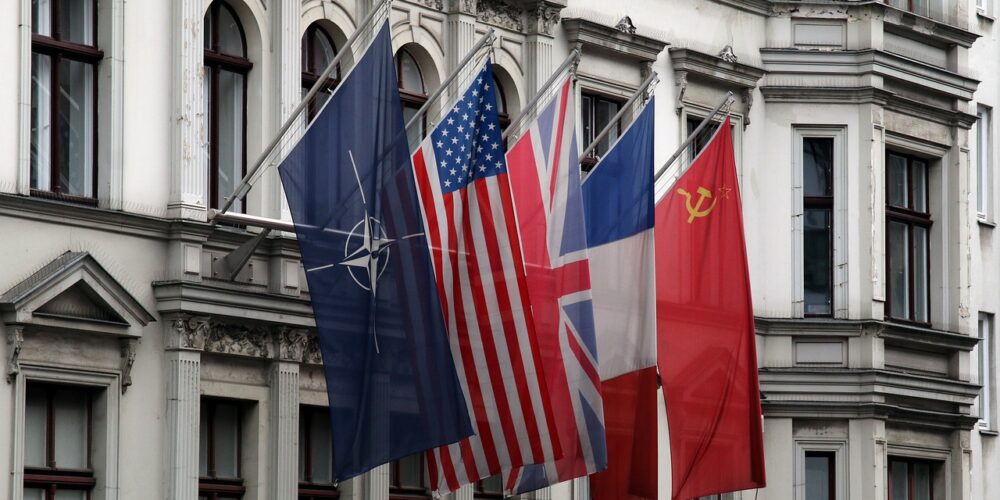„A successful deterrence of China requires collaboration“
 Foto: Pixabay
Foto: Pixabay
Ben Hodges, Lieutenant General (ret.), U.S. Army, and Senior Advisor at FBH Geostrat Consulting GmbH, shares his insights on how Trump and the new administration might address current geopolitical challenges and their potential impact on the transatlantic relationship.
General Hodges, President-elect Trump has regularly criticized NATO, especially when it comes to the financial imbalance of the national defense budgets in the USA and in Europe. How will the U.S. commitment to the alliance alter under the new Trump administration and what would this mean for NATO’s credibility?
It’s not helpful that the incoming President creates doubt and uncertainty about US’s commitment to NATO and Europe. But my sense is that he won’t actually pull out of NATO or turn his back on NATO because enough of the GOP leadership in Congress understand how important it is for US security and prosperity and I think President Trump will as well. But he’ll continue to be harsh and demanding in his interactions with some Allies, especially since he believes he’s the one who forced many countries to increase spending.
How will the new NATO Secretary General Mark Rutte and the new U.S. President get along?
I think Secretary General Rutte will do very well. He’s already demonstrated a strong, savvy understanding of Mr Trump and his visit to Mar a Lago was a good example. But he’ll be tested throughout, especially if nations like Germany continue to fall short. And a divergence on how to deal with Ukraine and Russia could be a source of friction.

Lieutenant General (ret.) Ben Hodges
How may Trump’s cabinet picks, Marco Rubio for Secretary of State and Mike Waltz for National Security Advisor, affect the incoming administration’s commitment to the transatlantic alliance?
The good news is that both Rubio and Waltz are pro-NATO and Russia hawks. But will they be able to achieve policy successes if others who influence Mr Trump disagree, for example, DJT Jr, Elon Musk, etc?
Trump has already announced to once again leave the Paris Climate Agreement. Which value will alliances in general, treaties, Western and rules-based institutions have, if the United States pulls this democratic international framework into question?
I think most nations and agencies are already expecting it and should be adapting, preparing for it.
Would Germany, the United Kingdom, France and other major European countries be able and willing to tremendously increase their military support for Ukraine, if the new Trump administration decided to stop supporting Ukraine in its war against Russia?
They certainly have the economic power to do it…but I haven’t seen that they have the political will to do this. But I would expect that countries like Poland, Italy, Finland and the Baltic countries will do this…they do have the political will…because they are not confused about the threat from Russia. The center of gravity of resistance to Russia is shifting to the East.
Which political approach will the new U.S. government most probably follow in Israel’s war against Hamas, Hezbollah, Huthis and other proxies from Iran in the Middle East?
I don’t know yet…signals from Trump about not getting involved in the post-Assad Syria are not encouraging. But clearly we should try to influence what happens there…no Russian or Chinese influence, no export of terrorism, and return of Syrian refugees to Syria. We should strengthen our relationship with our NATO Ally, Turkey. And of course I expect a Trump Administration to be very close to the Netanyahu government in Israel.
Since America’s pivot to Asia the Indo-Pacific has become the most important world region for the USA from a geopolitical and geostrategic standpoint. What U.S. strategy for China do you expect in the next four years with regard to the rising tensions surrounding Taiwan?
This is not clear…there is a divide even in the GOP about how to do this. A successful deterrence of China will require military as well as economic and diplomatic strength, all of which requires collaboration with Allies, including our European allies. But the best way to deter China now is for them to see that we are willing to do whatever it takes to help Ukraine stop Russia. I fear that China sees that we in the West don’t have the political Will to defeat Russia and so they are emboldened to do what they want to challenge the international rules based order in the IndoPacific region.
Frederick Benjamin „Ben“ Hodges III is a retired United States Army officer who served as the commanding general of United States Army Europe. He has been a Senior Advisor to Human Rights First since June 2022 and also serves as NATO’s Senior Mentor for Logistics. He previously held the Pershing Chair in Strategic Studies at the Center for European Policy Analysis. He retired from the U.S. Army in January 2018, is a board member of Atlantik-Brücke, and lives with his wife in Frankfurt, Germany.
